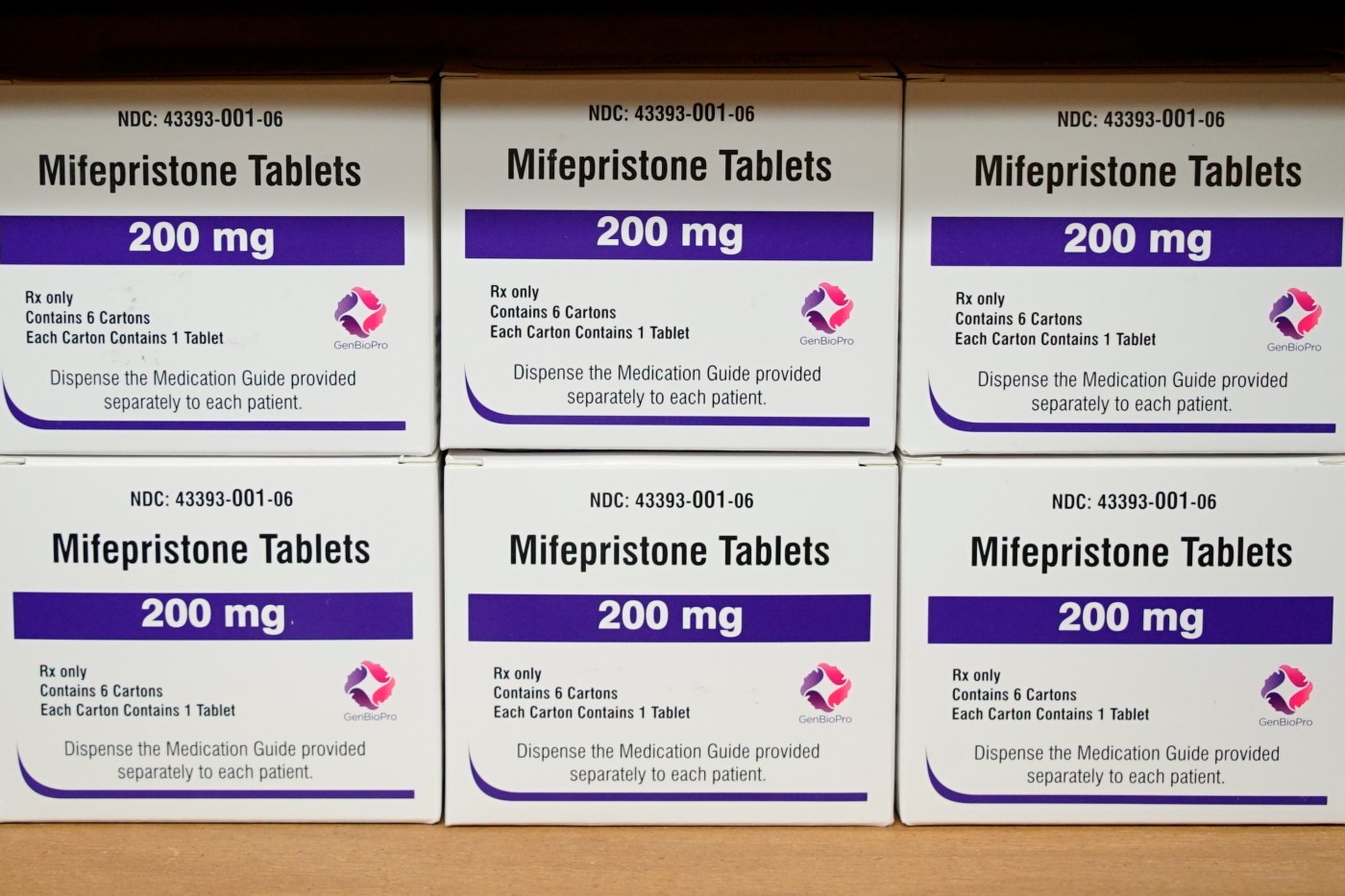
Massachusetts mifepristone stockpile to remain in the hands of Healey administration
Gov. Maura Healey’s administration plans to hang onto a nearly $700,000 stockpile worth of medication abortion pills after the U.S. Supreme Court ruled this month to preserve access to the drug.
Healey teased an announcement on the state’s 15,000-dose-strong stockpile of mifepristone — one of two drugs used in medication abortion — last week after justices shot down an attempt to overturn federal regulators’ approval of the drug.
In an offhand comment during an appearance on WBUR’s “Radio Boston,” Healey said the state will “hold onto” the pills for now, which have a five-year shelf life, were purchased in April 2023, and are in the possession of the Department of Public Health.
“So much is under attack right now and it’s something that Donald Trump is fully behind and running on, supporting. People got to understand this, they want to take away access to abortion, access to medication abortion, access to contraception, access to IVF,” Healey said. “This is the Republican playbook right now.”
In a statement after the interview, Healey’s spokesperson, Karissa Hand, said the administration does not plan to get rid of the stockpile.
Related Articles
Gov. Healey defends state police after ‘disgusting’ remarks from Michael Proctor in Karen Read trial
Pols & Politics: Has Gov. Healey’s work for Biden paid off? She says ‘relationships matter’
Opening of overflow shelter at former prison in Norfolk ‘delayed,’ town officials say
Herald exclusive: Natural gas targeted in Massachusetts Senate climate bill
Healey teases announcement on Mass. mifepristone stockpile after SCOTUS ruling
“With continued attacks on reproductive health care and the threat of another Donald Trump presidency, we will continue to keep the mifepristone stockpile to ensure we are prepared to protect access if there are further efforts to restrict medication abortion,” Hand said.
The stockpile has sat motionless for more than a year after it was purchased. Administration officials said they were waiting for the Supreme Court ruling and planned to “evaluate next steps” based on what justices decided.
Access to mifepristone remained available after a case against the drug shifted into the hands of the Supreme Court, where justices ultimately ruled that opponents of the medication lacked the legal standing to sue the FDA.
Justice Brett Kavanaugh argued the federal courts were the “wrong forum for addressing” concerns about the medication.
“The plaintiffs may present their concerns and objections to the president and FDA in the regulatory process, or to Congress and the president in the legislative process. And they may also express their views about abortion and mifepristone to fellow citizens, including in the political and electoral processes,” he wrote.


